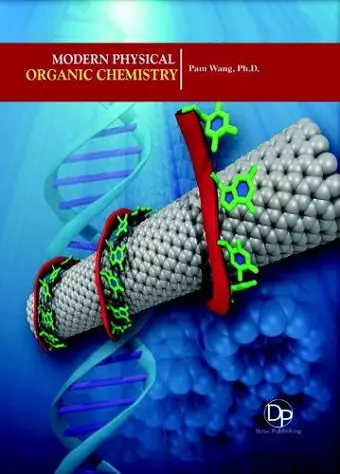Modern Physical Organic Chemistry
Format:Hardback
Publisher:Delve Publishing
Published:30th Nov '16
Currently unavailable, and unfortunately no date known when it will be back

Physical organic chemistry is an interdisciplinary field that applies fundamental physical principles to study the relationship between the structure and reactivity of molecules. Such studies provide theoretical and practical frameworks to understand how changes in structure in solution or solid-state contexts impact reaction mechanism and rate for each organic reaction of interest. Physical organic chemists use theoretical and experimental approaches work to understand these foundational problems in organic chemistry, including classical and statistical thermodynamic calculations, quantum mechanical theory and computational chemistry, as well as experimental spectroscopy, and crystallography approaches. This broad discipline has given rise to many well-established theories, for example, those for calculating reaction rates, elucidating reaction mechanisms, and understanding intra- and inter-molecular interactions. Theoretically, thermodynamic and quantum mechanical models are the most heavily invoked, while experimentally, spectroscopic and crystallographic methods are the most commonly employed. Recently, computational models (e.g. molecular dynamics simulations) have also been developed to expedite the process of designing small and macromolecules. Physical organic chemistry has helped the advancement of old and emerging fields alike, ranging from electrochemistry to materials science/engineering to chemical biology. This book will discuss the recent trends and discoveries in this highly applicable field. The text is composed of sixteen chapters contributed by experts in their respective field. Modern Physical Organic Chemistry provides the chemical community with authoritative and critical assessments of the many aspects of physical organic chemistry. The field is a rapidly developing one, with results and methodologies finding application from biology to solid state physics. It aims to provide a valuable source of information not only for physical organic chemists applying their expertise to both novel and traditional problems, but also for non-specialists across diverse areas who identify a physical organic component in their approach to research. Its hallmark is a quantitative, molecular level understanding of phenomena across a diverse range of disciplines. More specifically, physical organic chemistry applies the experimental tools of physical chemistry to the study of the structure of organic molecules and provides a theoretical framework that interprets how structure influences both mechanisms and rates of organic reactions. It can be thought of as a subfield that bridges organic chemistry with physical chemistry. Physical organic chemists use both experimental and theoretical disciplines such as spectroscopy, spectrometry, crystallography, computational chemistry, and...
ISBN: 9781680958997
Dimensions: unknown
Weight: 940g
204 pages